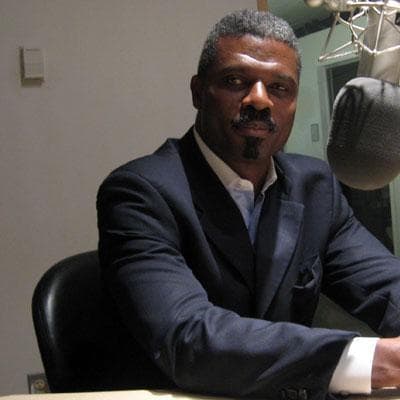Advertisement
Rev. Brown: TenPoint Coalition Refocused On Ending 'Culture Of Violence'
Resume
The anti-violence organization at the heart of the "Boston Miracle," dramatically reducing gang-related crime in the 1990s, is revitalizing its mission. With that in mind, the Boston TenPoint Coalition has named one of its founders, the Rev. Jeffrey Brown, as its new executive director.
We invited Rev. Brown into WBUR's Studio 2 to talk about his plans for the organization he helped establish 17 years ago.
Bob Oakes: What's the current state this summer of youth violence in Boston?
Rev. Jeffrey Brown: Well, we're very hopeful as we have experienced a reduction in gun shootings in the city. There are some people who are saying that it's attributed to the weather that we've had...
The rainy weather.
The rainy weather that we've had. But actually there's also something else happening out there on the streets. You have young people who are actively making decisions not to shoot. We had a cease fire in the beginning of June in which we talked to a lot of the young men who do a lot of the shooting violence in the city. And as a result of that we've seen this decline in gun shootings, which is a very hopeful sign.
Is the cease fire still in effect, is it holding?
We're at a point where we're looking at all the groups and we're checking to see about the conflicts between the various groups, and it appears as though there is a definite reduction in the violence.
I also think that a cultural shift is beginning to happen, where people are beginning to say to themselves, 'We're really getting tired of this violence and we want to see something different.'
How do you make what we hope is not a seasonal cultural change a permanent cultural change so that gun violence can be reduced permanently?
I think what we need to do is continue the trajectory that we're in currently. And that is trying to provide resources for those youth and young people who are out on the streets, to be mentors to them, to get more volunteers out on the streets actively working with youth, to continue to send a cultural message that we are a community that's united in seeing the end of the era of violence in our city.
And we're doing that in various ways. It's not just the Boston TenPoint Coalition, but it's a number of different groups that are out there.
Of those items you just ticked off, what's the highest priority that may or may not be on your list?
Getting out there on the streets and doing what we can to broker peace among those who are doing the shooting violence. And that is working with our street workers to help them to build relationships with the youth, providing those street workers and then also providing the resources so that those workers can actively get what those youth need into their hands so that they can be productive members of society.
What's the biggest challenge for the TenPoint Coalition in terms of accomplishing those things?
I think the biggest challenge is making sure that the larger community is engaged in this. It can't be just a one organization kind of effort. It has to be an effort that comes from every aspect of our community.
I think this would be a good point for me to pull a piece of paper out here, the original 10 points of the TenPoint Coalition. No. 1 was adopting youth gangs. Seventeen years into this, has that been successful?
Those points, and particularly the first few points of that 1992 document, was a way in which churches had to be actively engaged with youth. They could no longer stay within the four walls of their sanctuaries and try to create programs to bring youth in. They had to come out of their churches. And I think we've been successful, in many ways, around that effort.
Since 1992, the 10 points have been rewritten. What are the priorities now?
The new priority, and the No. 1 priority, is changing the culture of violence in the city.
I remember when we had the youth with us, and when we had them look at the old points, and we said to them, 'So, what do you think?' And they threw out a few that they thought were irrelevant for today, and then they added the No. 1 priority, which was to end the era of violence.
And I remember looking at the young man who had suggested it, and I said, 'You know, what you're asking for is a tall order.' And he looked back at me and he said, 'You didn't ask me what was the easiest thing to do. You asked me what needed to be done.'
Describe if you would what you think the relationship is right now between youth in the city of Boston who might be gang-oriented and the Boston Police Department.
Police-youth relations have improved to some degree, although we still have pockets of interaction and conflict between youth and police. I think that it's going to take a long time for the perception of police-youth relations to improve.
But I think when you look at it on the ground, you have a lot of officers who are doing community service work or are engaged with the youth in other ways other than police work, and so they understand the role that law enforcement has to play and they're more respectful of the police.
Is it great? Well, I think it's on its way.
This program aired on July 30, 2009.
